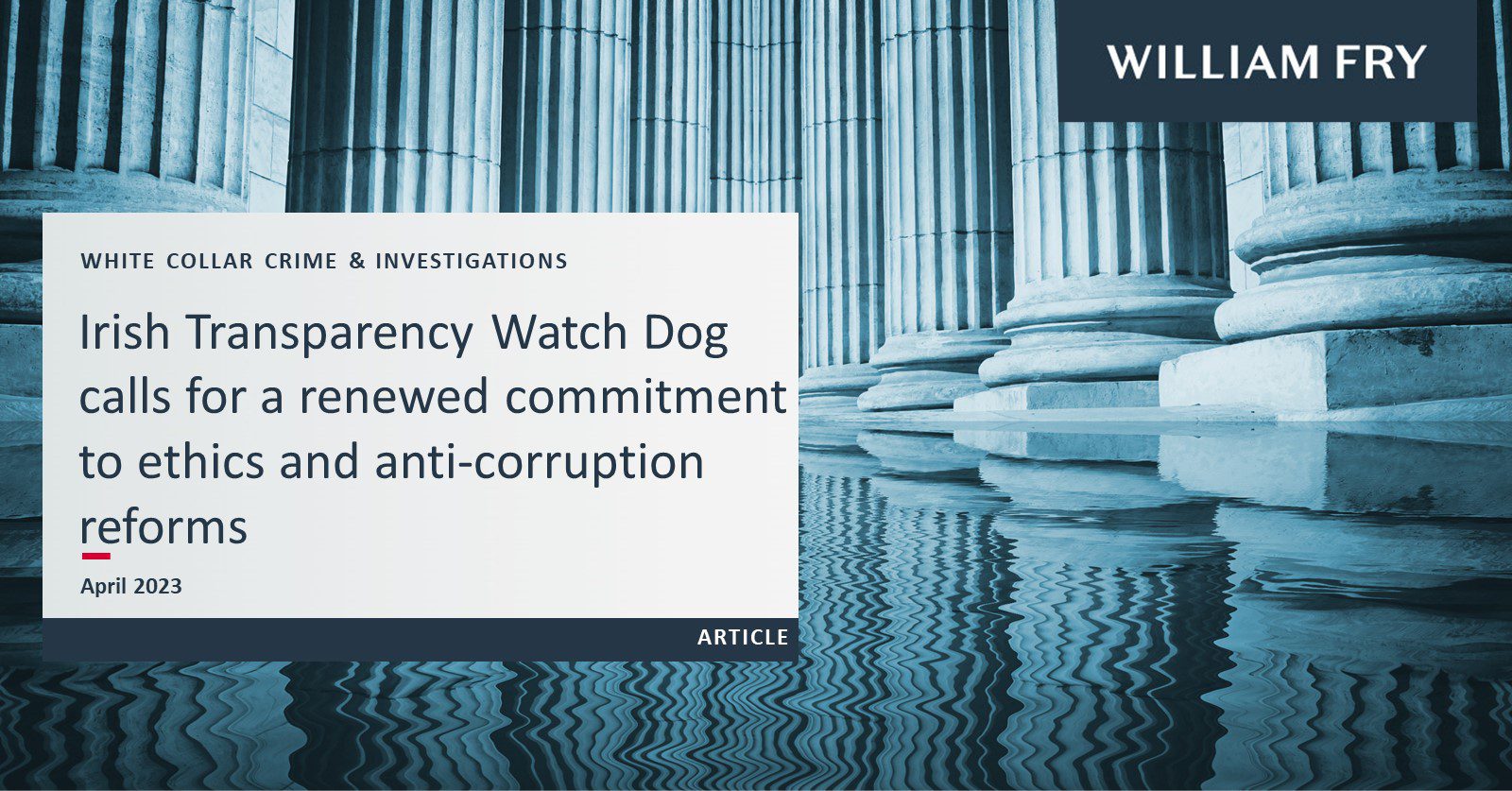Following the publication of the 2022 Corruption Perceptions Index (CPI) by Transparency International, the organisation’s Irish faction has urged government officials to make a renewed commitment to ethics and anti-corruption reforms.
There was an improvement in Ireland’s CPI score from the previous report, going from 74 points out of 100 to 77 points in the latest publication. However, Transparency International Ireland believes that Ireland could improve on issues such as enforcing anti-money laundering rules, corruption within the Garda Síochána organisation, and enabling corruption in countries with lower CPI scores.
Transparency International Ireland has previously criticised the decision of the Companies Registration Office (CRO) to prevent journalists and civil society organisations from accessing the Register of Beneficial Ownership (RBO) to get details about company ownership. This change followed a decision of the Court of Justice of the European Union (CJEU), which invalidated a provision of the 5th EU Anti-Money Laundering Directive (AMLD5) last year. We previously discussed the issues this decision created for transparency in Ireland here.
The closer the CPI score is to 100, means the country is perceived to be less likely to be affected by public-sector corruption. Ireland is ranked 10 out of 180 countries for its perceived limited likelihood of being affected by public-sector corruption. According to the CPI, Ireland is perceived to be less affected by corruption than the UK, Australia, and Canada. However, Transparency International Ireland has speculated that a lack of major corruption-related controversies in Ireland in the past year has helped its case.
The findings of eight separate surveys and studies conducted by think tanks and political risk agencies independent of Transparency International form the basis of Ireland’s score. New laws on whistleblowing, lobbying regulation and anti-corruption have been credited with the increased CPI score.
When discussing points of concern, Transparency International Ireland noted a rise in the number of suspicious Irish Limited Partnerships (ILP) established in Ireland by companies in “secrecy jurisdictions”, meaning jurisdictions that specialise in enabling individuals to hide their wealth and financial affairs from the rule of law. ILPs have limited filing requirements and do not require the ultimate beneficial owner of the partnership to be named publicly. Similar company structures in Scotland were previously involved in major international scams leading to legislation being passed to reveal the true owners of Scottish Limited Partnerships (SLPs). This led to a decrease in their popularity and an increase in ILP’s popularity. This rise in ILPs and the CRO’s decision to limit public access to the RBO creates significant concerns for transparency in Ireland.
While this high CPI score undoubtedly benefits Ireland’s international reputation, work still needs to be done. Re-establishing a more transparent RBO is one way to continue to counteract money laundering and corruption in Ireland and build public trust in our institutions.
For further information, please contact Paul Convery, Sarah Twohig or your usual William Fry contact.
Contributed by Jane Gallagher


